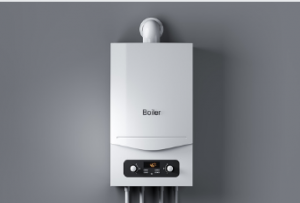You miss many benefits if you have never thought about using hot water systems. Here is a look at three reasons why. These systems can be either Electric, Wood-fired, or natural gas. They all provide hot water for your home, but what are their benefits? This article will discuss each one in detail. You can also find small storage units at most grocery stores. Ultimately, you can choose the best option for your needs.
Wood-fired
 Hot water systems have two basic principles: heat storage and burner capacity. A water heater has a maximum storage capacity of approximately 8,000 gallons; the higher the storage capacity, the more hot water the system can produce. A wood-fired water heater can achieve the same temperature in both situations. However, the storage capacity of a wood-fired water heater is much lower, resulting in higher energy use.
Hot water systems have two basic principles: heat storage and burner capacity. A water heater has a maximum storage capacity of approximately 8,000 gallons; the higher the storage capacity, the more hot water the system can produce. A wood-fired water heater can achieve the same temperature in both situations. However, the storage capacity of a wood-fired water heater is much lower, resulting in higher energy use.
A draft fan is necessary to maintain proper combustion. It must be sized for the rate of fire in the system. For example, a wood-fired water heater requires one square foot heat exchange surface per 2,000 BTU of rated output. Similarly, if the maximum output of the wood-fired water heater is 200,000 BTU per hour, you need to install a 100-square-foot system with a fan.
A wood-fired hot water heating system has two main advantages over an oil or gas-fired one: its efficiency and lower cost. While the size of the system depends on the size of the greenhouse, a wood-fired water heating system can accommodate many greenhouses and tobacco curing barns. Wood-fired hot water systems use around 200 pounds of air-dried wood per hour to heat water. During this time, 2,300 gallons of water passing through the heat exchangers drops 45 degrees Fahrenheit. As a result, water in the storage tank remains constant, at a temperature consistent throughout the process.
Electric
In new homes, the choice of electric hot water systems SA is practically endless. Because of the new energy efficiency benchmarks, it is crucial to choose a system with high-efficiency heating and cooling. Electric hot water systems are available in single-element or dual-element models, with a point of use or whole-house units. For more information, read the specifications and reviews of electric hot water systems before buying one. In addition, you must decide what type of electric hot water heater you need for your new home.
The electric hot water system works by connecting to your regular electricity supply. While smaller tanks can be plugged into a standard power outlet, larger systems require a fixed integration into your home’s electrics. It works by heating water in the tank by passing an electrical current through an inner wire. As a result, the heated water rises to the top and travels to the hot tap when needed. This heating system has several benefits. However, it is essential to note that the temperature must be at least 60 deg C for the unit to function effectively. Moreover, the water pressure can make the water flow out of the tank.
ESWHs can be operated with various tariffs. These tariffs can be either continuous or intermittent, and continuous tariffs are available in some regions of the world. Some are also regulated. In New Zealand and Australia, electricity suppliers use local tariffs to control electric hot water systems. This system allows the electricity supplier to turn off the appliances during periods of high demand. On the other hand, the continuous tariff is used in 25 percent of homes in Australia.
Natural gas
While installing a natural gas hot water system may be more expensive than an electric one, they have several advantages. These advantages include environmental benefits, lower energy costs, and better performance. In addition, natural gas is less expensive than electricity, and its rates do not fluctuate during peak periods. For an average metro Victoria household, switching to a natural gas hot water system can save $495 per year on energy costs. In learning more, talk to your gasfitter or plumber about the benefits of natural gas hot water systems.
Comments are closed, but trackbacks and pingbacks are open.